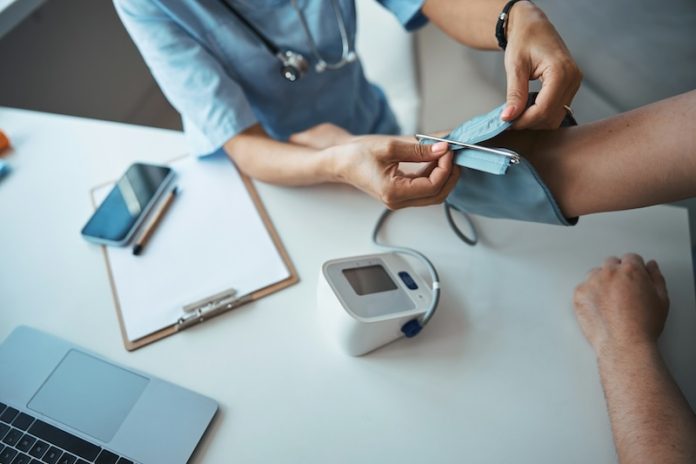
Many people may not realize it, but blood pressure tends to rise early in the morning.
This morning spike, which often occurs between 6 a.m. and 10 a.m., can be risky, especially for those with high blood pressure (hypertension).
Researchers have found that this increase is a natural process for most people, but for some, it can be dangerously high and cause health problems such as heart attacks or strokes.
In this review, we’ll discuss the reasons why blood pressure rises in the morning and offer some simple solutions to manage it.
Research has shown that blood pressure follows a daily rhythm, rising and falling at certain times. This cycle is linked to the body’s internal clock, which is why blood pressure is typically lower at night when we are asleep.
When the body starts to wake up, it triggers a release of hormones like adrenaline and cortisol. These hormones help the body get ready for the day, but they also increase blood pressure.
According to a study published in Hypertension, this natural hormone release causes blood vessels to tighten and the heart to pump faster, leading to a rise in blood pressure in the early morning.
However, some people experience an exaggerated morning blood pressure surge, and this can be dangerous. Researchers from the American Heart Association have pointed out that this spike in blood pressure can increase the risk of heart attacks and strokes, especially in people with existing heart conditions.
The researchers discovered that a sharp rise in blood pressure during these hours can cause more strain on the heart and blood vessels, making it more likely for a heart attack or stroke to occur.
Several studies have identified the key factors that contribute to these morning spikes. One of the primary causes is lifestyle. For example, eating a diet high in salt or not getting enough sleep can increase the risk. Stress is another major factor.
When someone is stressed, their body releases more of the hormones that tighten blood vessels, causing blood pressure to rise.
A study conducted in Japan found that people who reported high levels of stress had significantly higher morning blood pressure than those who felt more relaxed.
Another contributing factor is medication timing. People who take their blood pressure medication in the morning might not have the medication’s full effect during those early hours when their blood pressure naturally rises.
Research published in The Journal of Clinical Hypertension suggests that taking certain blood pressure medications at night can help reduce morning blood pressure spikes.
This approach, known as “chronotherapy,” matches medication timing with the body’s natural blood pressure rhythm to offer better control.
The good news is that there are several simple ways to manage this early morning rise in blood pressure. For example, a balanced diet and regular exercise are both effective at lowering blood pressure throughout the day.
A 2018 study in The Lancet showed that regular physical activity helped to keep blood pressure stable in people with hypertension, reducing the morning surge. Experts recommend activities like walking, swimming, or yoga to keep blood pressure in check.
Another helpful solution is to establish a relaxing morning routine. Deep breathing exercises and avoiding stressful activities can reduce the release of stress hormones and prevent blood pressure from rising too quickly.
A study published in The American Journal of Cardiology found that deep breathing exercises, such as inhaling deeply and exhaling slowly for five minutes, significantly lowered blood pressure levels in participants who practiced it every morning.
In addition, adjusting the timing of blood pressure medications can make a big difference.
Researchers have found that taking blood pressure medications at night instead of in the morning can help maintain stable blood pressure levels throughout the night and early morning.
In a large clinical study called the Hygia Chronotherapy Trial, people who took their medication at bedtime had better control over their morning blood pressure and a lower risk of heart attack and stroke compared to those who took their medication in the morning.
In conclusion, early morning high blood pressure is a common phenomenon caused by the body’s natural rhythms, hormone release, and lifestyle factors.
For many people, this rise in blood pressure is harmless, but for those with hypertension, it can increase the risk of heart-related complications.
By adopting simple lifestyle changes, establishing a calming morning routine, and considering medication timing, it’s possible to manage this early morning surge and reduce the risk of serious health problems.
Understanding the causes and solutions can help people take control of their blood pressure and protect their hearts.
If you care about high blood pressure, please read studies that early time-restricted eating could help improve blood pressure, and coconut sugar could help reduce blood pressure and artery stiffness.
For more information about blood pressure, please see recent studies about added sugar in your diet linked to higher blood pressure, and results showing plant-based foods could benefit people with high blood pressure.
Copyright © 2024 Knowridge Science Report. All rights reserved.



